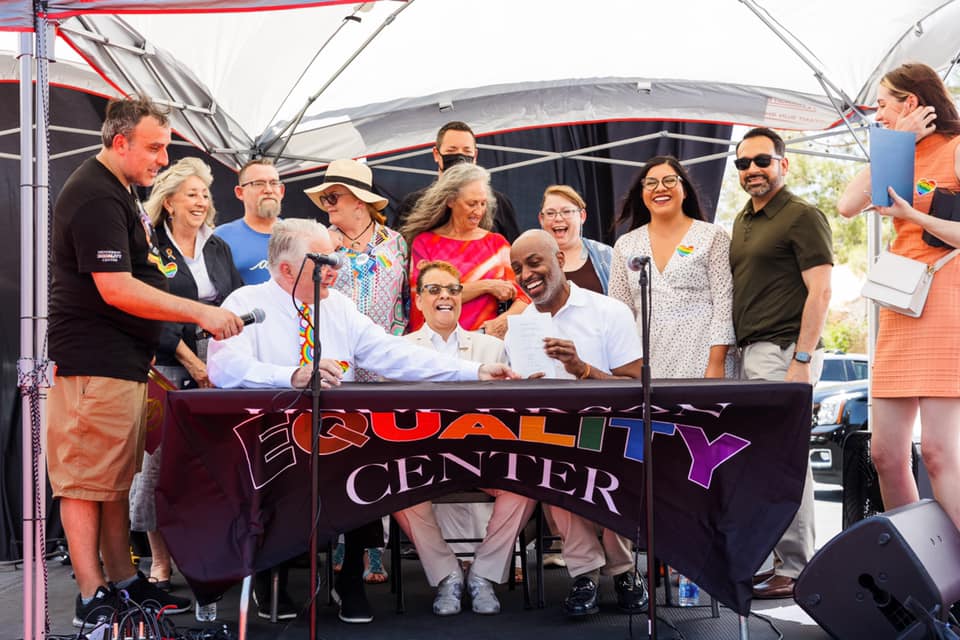 Q. Can you briefly describe the process you went through to get your bill to modernize HIV criminalization laws to the floor? e.g., how did you join the task force? How did you find bill sponsors? How did the language get drafted?
Q. Can you briefly describe the process you went through to get your bill to modernize HIV criminalization laws to the floor? e.g., how did you join the task force? How did you find bill sponsors? How did the language get drafted?A. There was an open application process where people living with HIV were prioritized to have seats. However, when I attended their first meeting, no woman living with HIV was appointed, so SERO Project and the Center for HIV Law and Policy (CHLP) helped me draft a letter demanding that women be appointed, after we had requested many times that meetings be suspended until women were appointed and they were not.
From those actions, myself and one other woman living with HIV were appointed, two women from the Nevada health department, and one female HIV case manager were appointed. Our bill was sponsored by former Senator David Parks who originally wrote the outdated language 25 years ago. It was presented and championed by Senator Dallas Harris. The outdated HIV-specific laws were originally found by Allison Nichol, a legal advisor with SERO Project. The new language offered by the coalition was drafted almost entirely by Marguerite Shaurer, Jada Hicks, and Amir Sadeghi at CHLP.
Q. What best practices can you share when working within a task force? Any lessons learned?
A. Collaboration is the key to success. Communication is a six-lane highway, not a two-lane street. When we use science, we win. Speak up more often about the issues people say we shouldn’t be discussing.
Q. How was it working with the sponsors of the bill? What lessons can you share?
A. The sponsors of the bill were very open to hearing the coalition’s narrative, and they used our language recommendations to create the narrative that gave us the win. A lesson learned is to make sure you actively collaborate with other community members to create the narrative you want to be used. If you know the narrative you’re using is one that has already been successful in other states, then use it.
Q. What are your feelings about the final result of the bill?
A. It’s not a perfect bill, but it’s a great step forward, and it met all of our original demands.
Q. Are there any next steps for the Nevada Advisory Task Force on HIV Exposure Modernization?
A. Our next steps include ensuring the appointments to the task force in 2021-2022 are diverse and reviewing Nevada laws to find which ones are problematic and need reform.



